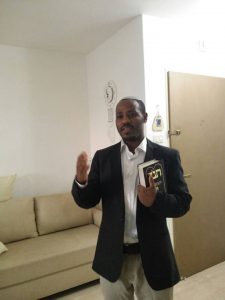 To love one’s country is a collective responsibility.
To love one’s country is a collective responsibility.
Israel is a political, historical, geographical, demographic and cultural reality. This alchemy constitutes a carnal and spiritual substance – body and soul – where a destiny is rooted. This destiny is always beyond and beyond reality but it carries a promise that is the vital energy of the country. To say, to formulate publicly his love for Israel, is to become aware and to take back his destiny in hand.
The great challenge of a great nation is to maintain the bond and cohesion, without the public space being locked or burst.
Israel’s love is everyone’s business, it transcends political dissent, ethnic differences, diversity of beliefs and age issues. These are the moral and ethical qualities, the intrinsic skills of everyone, and our ability to put the general interest above the staff that will make Israel prosper. Let everyone love his country in his own way, but let others love him as they wish but patriotism can be learned. Learning The “Hatikva” will not be enough if we do not give back to our children the pride of being Israeli. The example must be given by politicians who can not limit the patriotic incantation to the aftermath of the great tragedies, even the economic and fiscal domains. To love Israel does not require any justification. Nevertheless, while preaching a model, which tends towards the universal, Israel can not be abstract, it has its own values and way of life that it must claim, preserve and protect. Living together is a beautiful message but must be articulated on realities. An identity is constructed in a way concretely, through constant societal choices and identity parameters, which must be constantly better. It would be necessary to gather and unite, to put the most values in common, but every society has its identity own evolution and its cultural landmarks. Of course, the elements that structure it should not be become rigid, dogmatic or discriminatory. The ideal of claiming a human, universal, human rights society ” Without distinction of race, sex, language and religion ” would become reality
that if we build ourselves culturally and politically, through ” our language, our identity, our religion and our morals ” (Herodotus).
